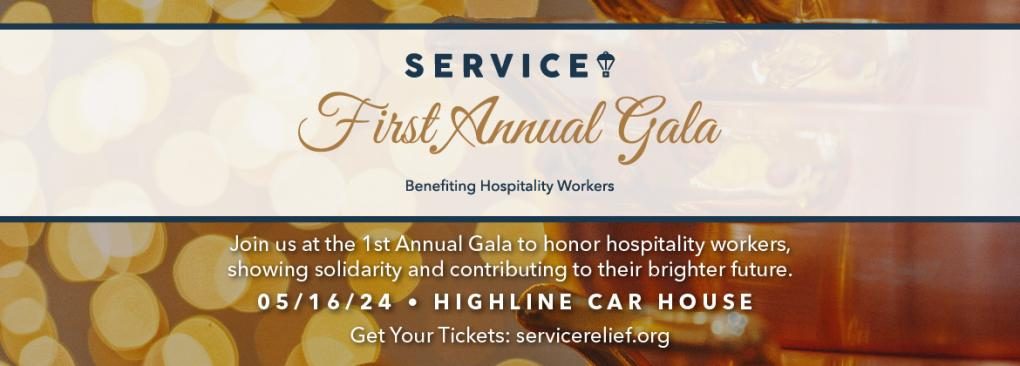(614) Music Club: risik
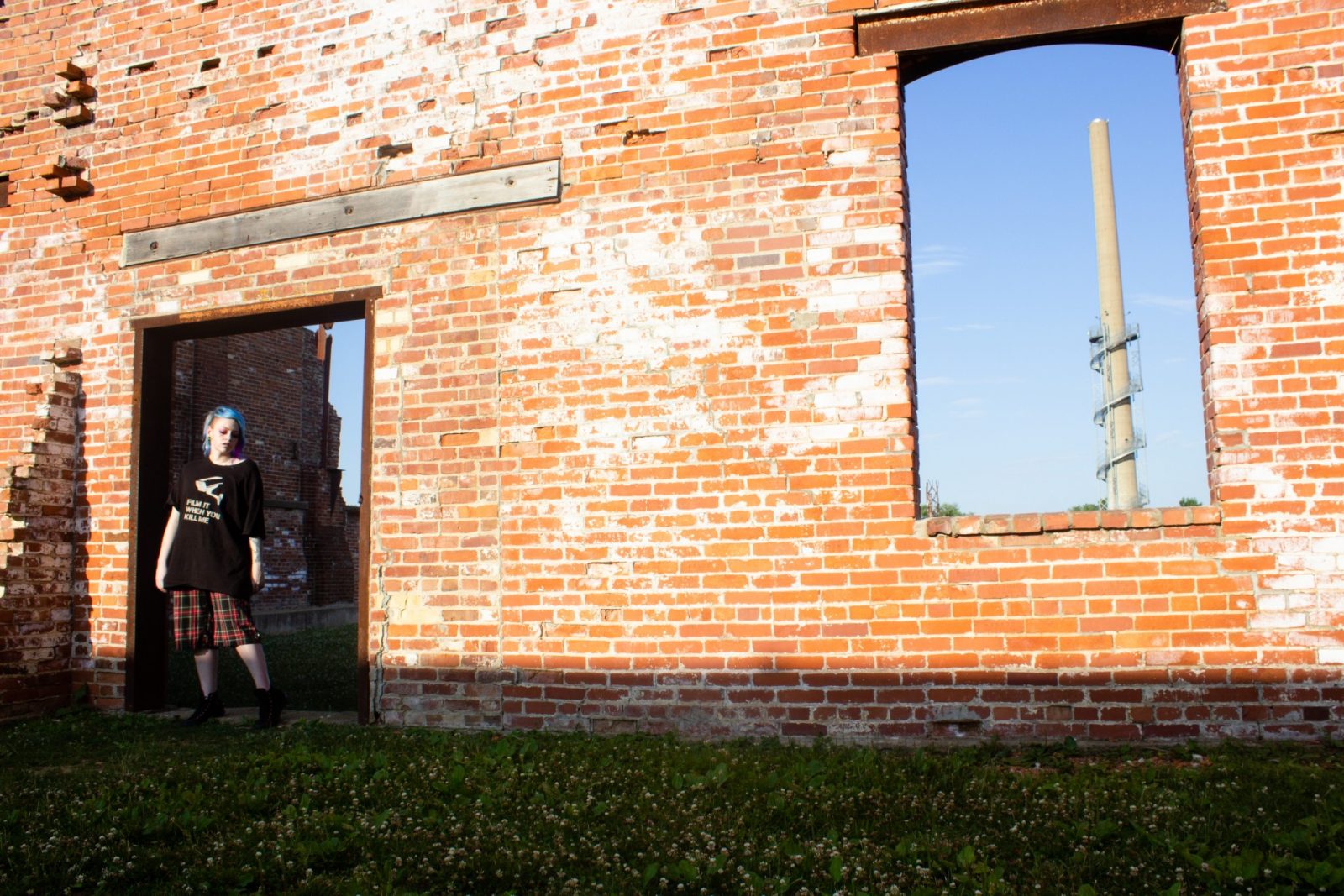
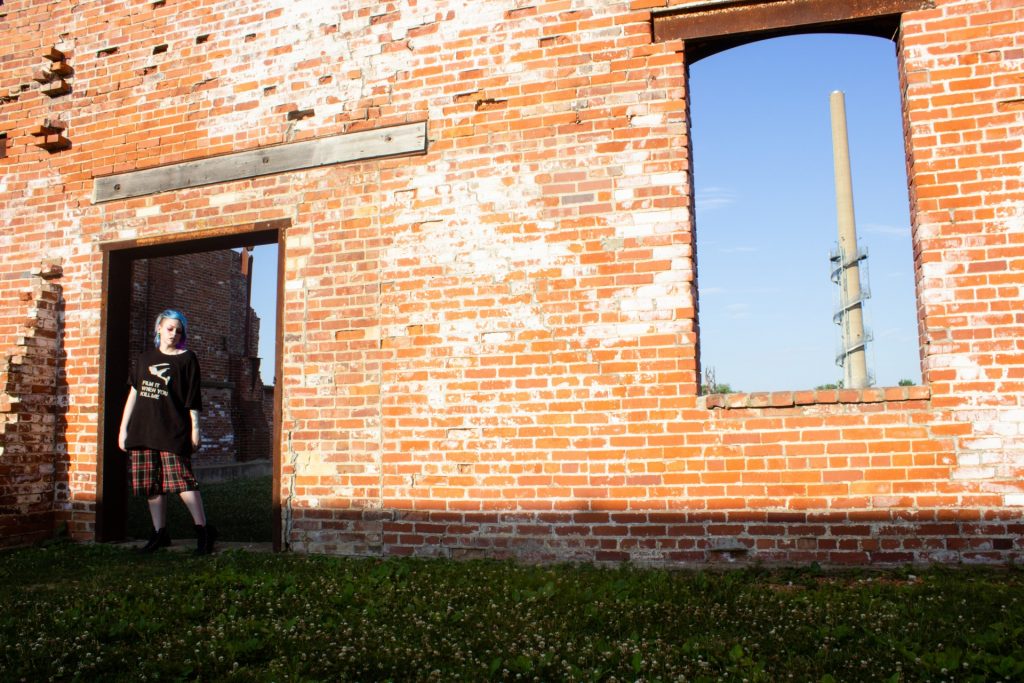
Every week, (614) Music Club teams up with your favorite local artists to build a playlist consisting of songs that have inspired their sound, tracks they’re currently jamming out to, guilty pleasures, and favorite Columbus musicians. They also stop by to answer a few burning questions and plug any upcoming performances or releases.
This week’s playlist is brought to you by the DJ risik. Originally from Rochester, New York, risik’s music makes you feel like you’re walking through Blade Runner’s universe. Her colorful blend of dubstep, DnB and IDM represents some of the most unique bass music coming out of the Midwest. The DJ is also known for her contributions to the mental health and female musician communities. With news of sexual allegations against one of the biggest names in the EDM community leading for that DJ to step down, risik took time to discuss her timely thoughts on the subject and share her personal playlist with (614).
–
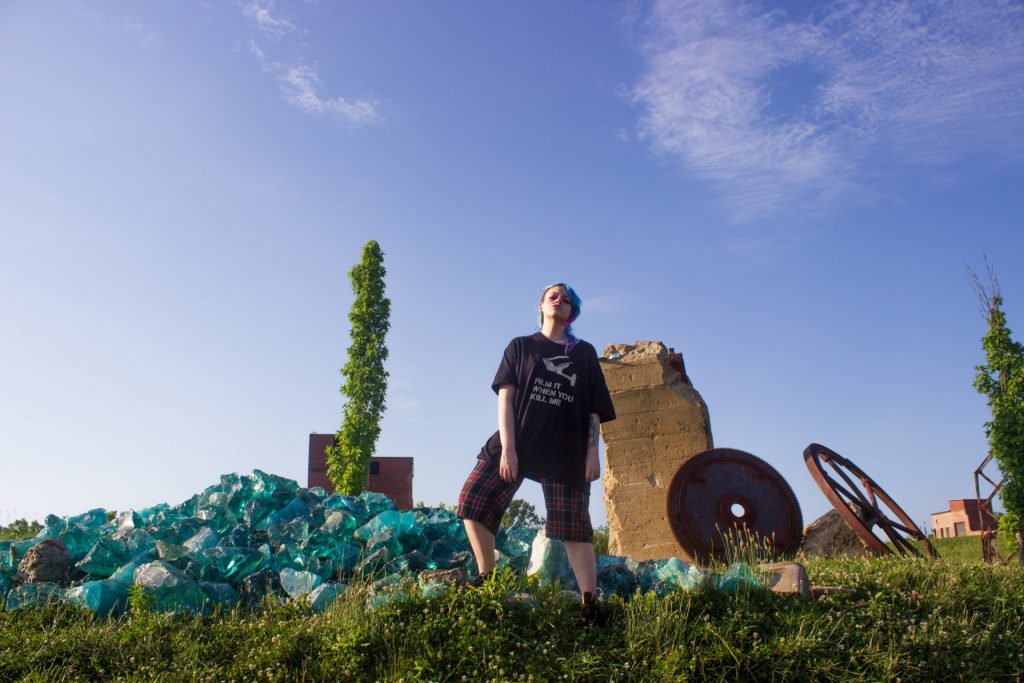
Can you talk a little bit about some of the songs you selected for your playlist and how they may have shaped your music career?
I went the “all-time-favorites” route with this one. The playlist starts off with some music that I listened to in my teens, progresses into when I first got into electronic music, and (then into) a little of what I’m listening to now. I tried to put them in order of when I first heard them, but every song in this playlist is filled with nostalgia, and I draw a lot of inspiration from these artists. If I hear any of these songs in a club, you can guarantee I’m losing my shit.
During the past few months, how have you been able to stay creatively busy? Did you pick up any new skills or hobbies?
I won’t lie, it’s been hard; especially the last few weeks. I’ve been designing graphics here and there for people, and I’ve painted a little bit. DJ mixes have been my most creative outlet lately. Putting mixes together and playing streams has been a lot of fun. I’ve also started working with DOMEOFDOOM on DoDTV, an upcoming video/Twitch project, and I did the branding and some overlays for that. At the beginning of lockdown I was laid off, and I’ve taken the extra time to learn Adobe Premiere to make my visuals –which has been fun!
What do you think separates the Columbus music scene from major industry hot spots like New York and Nashville?
Most of the people I’ve met in Columbus aren’t from here. So you get a lot of different perspectives in one place which makes the art more rich, sort of like NYC, but the cost of living is affordable. A lot of touring artists come through Columbus because it’s right in the middle of so many big midwest cities. So we get pretty big national shows happening almost every night of the week, without the big city price tag, usually in a much smaller and more intimate venue. That makes it a lot easier to get involved in the scene and make friends.
BROUGHT TO YOU BY
You use your platform to push positive messages that uplift women and those struggling with mental health issues. Why is that important to you? Have you felt like there’s been a positive change in those regards in the electronic and dance music communities?
I think representation and visibility is one of the most important parts about making the music industry inclusive. It inspires women in the crowd to think, “I can do that!”, and it’s an amazing feeling to be confident in yourself. I want other women to fall in love with making music the way I did because it’s fun and empowering.
I also think that having such a steep one-sided perspective in music is problematic. When the lineups are all men, when the compilations don’t feature any women, you’re missing out on a woman’s voice. You’re limiting the art and the industry to only men, therefore limiting the possibilities of the art itself. You’re ultimately hindering your own business. You’re missing out on the necessary checks and balances needed for a healthy community. If there are all guys in the green room, they may not pick up on how uncomfortable someone is making someone else, or be aware of the dangers that exist in that kind of environment the way a woman is.
I’ve struggled with mental health issues my entire life and only recently have I started to feel like I’ve got it under control. I want people to feel comfortable talking about their mental health because it isn’t a taboo or something to be ashamed of. Neither is treatment, whether it’s therapy or medication. Music and mental health go hand in hand; it’s one of my favorite coping mechanisms, as it is for many others.
I do feel like (there have) been positive changes in the music industry. I think GRL GANG has been a really positive experience for a lot of women, including myself. Jeanie is great at getting everyone on lineups, (and) making sure everyone in the group is heard and seen, which was lacking for a really long time. I do want to see ALL promoters and talent buyers take initiative to not only book women but to book and invest money into POC and LGBTQ+ artists as well. We have a lot of work to do, but we are making progress in the meantime.
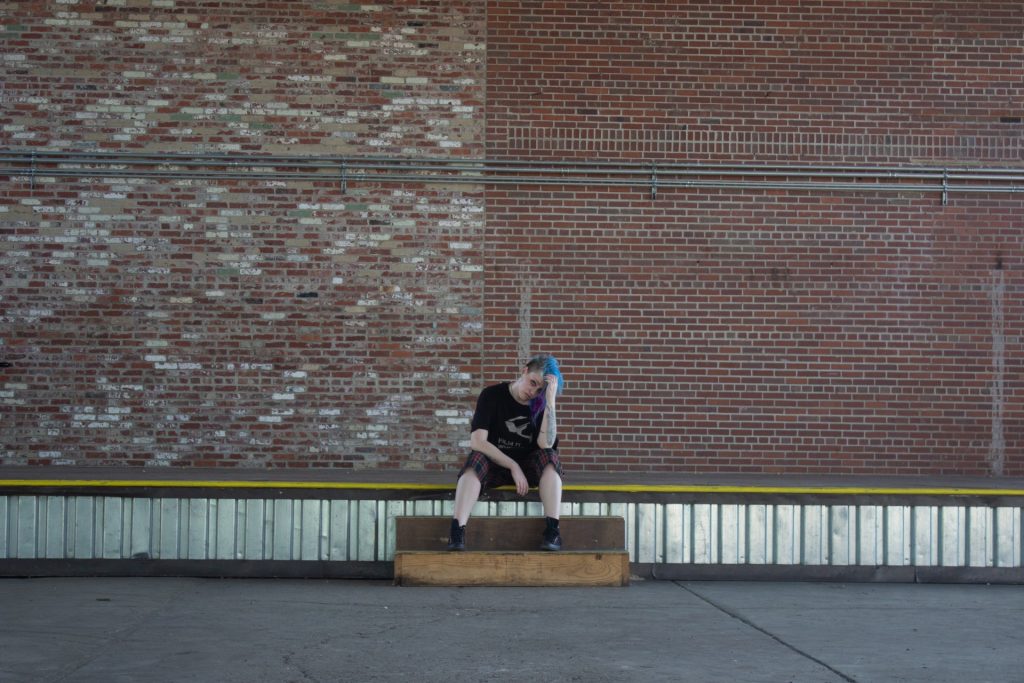
The news cycle has been sporadic ever since George Floyd’s death was brought to light. It’s even rippled into another wave of “Me Too,” with many artists, primarily males in the EDM scene, being accused of sexual abuse. The biggest of these DJs, and quite possibly the one with the biggest modern following, Bassnectar, recently stepped down from his position after old allegations came to light.
When the news first broke, what were your initial thoughts and how do you feel now after having a week or so to think about it?
There have always been rumours surrounding Bassnectar’s conduct, but finally seeing girls come forward and share their stories on the evidence instagram was triggering for me. The stories were all too familiar and sounded exactly like my experiences with the abusers I’ve known in my own life. What hit the hardest was hearing the recorded conversations he had with one of the girls involved. It’s one thing to hear a victim’s story in their words, but actually hearing his voice gaslight and attempt to manipulate her into keeping quiet by saying her actions would result in him “going to live forever in a Tennessee jail for me to be raped and beaten to death.” It hurts to see someone who once inspired you a lot turn out to be that kind of person. I think all of us are going through stages of grief right now, whether you’re a self proclaimed “basshead” or just somebody who enjoyed his art and thought he seemed like a genuinely good person. I’m experiencing a lot of shock, mostly at him stepping down from his position, but it’s a sign of positive change in the industry. I have faith that there are enough influential people in dance music to make a difference. I also hope it gives other victims courage to speak up about abusive artists and people in power in the music industry. They will be heard. No one should ever feel unsafe at a rave. I’m disgusted that he used his power to hurt young girls.
Something that was brought up in an episode of the TV show High Fidelity was the argument of whether to shelve someone’s music if they’ve committed unforgivable acts. Michael Jackson was the topic of this conversation, and the main character brought up a point about not holding producer Quincy Jones’ music hostage because the person who sang over his tunes ended up being a serial child molester.
I feel the same way about Bassnectar. I have a hard time disassociating things, but I also know that a big reason why Bassnectar was such a massive movement was due to the community behind it, which is a very philanthropic community. In your opinion, if an artist does something unforgivable, is it OKto still listen to their music? Will you ever spin a Bassnectar track again?
I will never spin another Bassnectar track, just like I stopped playing songs of other artists who turned out to be abusers. It comes down to a personal choice and how you feel listening to that artist, knowing what they did. I don’t feel good about it, so I don’t do it, but I wouldn’t be mad at someone else for doing it. I also think it’s different to listen to a track vs. play it out. When you’re listening to it, it’s for you. Music leaves an imprint on us throughout our lives and is deeply ingrained in who we are. Maybe a certain song got you through a hard time, or takes you back to a particularly meaningful event in your life. It makes the music feel like it belongs to you, not the abuser. However, when you play it to a crowd of people, you’re using that music to represent yourself. That audience knows what that artist did, and now they associate you with that artist. Plus you’re profiting off of an abuser’s art, and potentially making them money too, which is like double shitty.
Another question that arose out of that scene in High Fidelity was one of the character’s defenses for still continuing to listen to Kanye West, a person with subjectively toxic political opinions. Kanye may have shitty politics, but I think there’s a big difference between having a “bad” opinion and being a “bad” person. Where do you think we draw the line in cancel culture?
To my knowledge, Kanye hasn’t sexually assaulted anyone, and that’s about where the line is for me to cancel someone. Cancel the serial abusers, the rapists, the murderers, the predators. I don’t believe in cancelling somebody just for having a different opinion and being outspoken. I don’t think having a different opinion and being outspoken about it is bad. As long as that opinion isn’t encouraging ignorance and intolerance. I don’t think voting Kanye for president is smart or good though. I want to make that clear.
We see sexual misconduct happening in any major music scene that’s male-dominated, which just so happens to be most scenes. How do we change this behavior? I brought up the idea that nothing will change until we hold people accountable at all levels, whether they’re famous or not. Also, why do you think we’re just now seeing people standing up against this in big numbers?
You basically said it yourself – the problem seems obvious, “male-dominated industry”. We NEED diversity in lineups and other positions in the industry. We need more women, LGBTQ+, and BIPOC artists, agents, promoters, security guards. We need the people who are in power right now to STEP UP and look around. If your lineups, compilations, and playlists are primarily white males then you need to go out of your sphere and look for artists that don’t fit that description. There are an endless number of talented artists ready for that spotlight, and there are numerous resources you can use to find artists. Reach out to people in your area, or reach out to me. I can send you lists of people ready to play. I want to see artists like CloZee and Tokimonsta rise to the level of influence that Bassnectar and Space Jesus once had because they are good people that ravers can look up to. I want to know that the show I’m playing or attending is being run by a diverse group of people who care about the safety of everyone involved, and who are looking out for each other all night. I think once we’ve reached that level of community the behavior will change.
It has to be a group effort. I think we are seeing a lot of people stand up to this for the same reason that I believe in getting more women on stage. When you see someone like you successfully doing something that you’re afraid to do or don’t think you can do, whether it’s coming forward about an abuser, learning a new skill, anything at all, it sends a message that you can do it too. That inspiration is contagious. When one woman speaks up, other women gain the confidence to speak up. When a woman gets on stage in front of a crowd, other women gain that confidence. The same goes for any other marginalized person. Representation begets representation. We need to continue down this path of diversifying dance music. If we continue to build this momentum, then I have faith in the future of dance music.
–
risik will be playing Turing Fest 2020, a virtual music festival taking place on July 18 and 19. You can find more out about the event here. The DJ will also be playing GRL FEST during the same weekend. You can find the event here. risik will also be playing a Wormhole livestream. You can find the July 29 stream here.
Here is where you can find risik on the Internet:
BROUGHT TO YOU BY

